You are here
New Releases

WCA SPOTLIGHT INITIATIVE READINESS PAPER
This readiness paper is a living document and we welcome any observations and contributions.
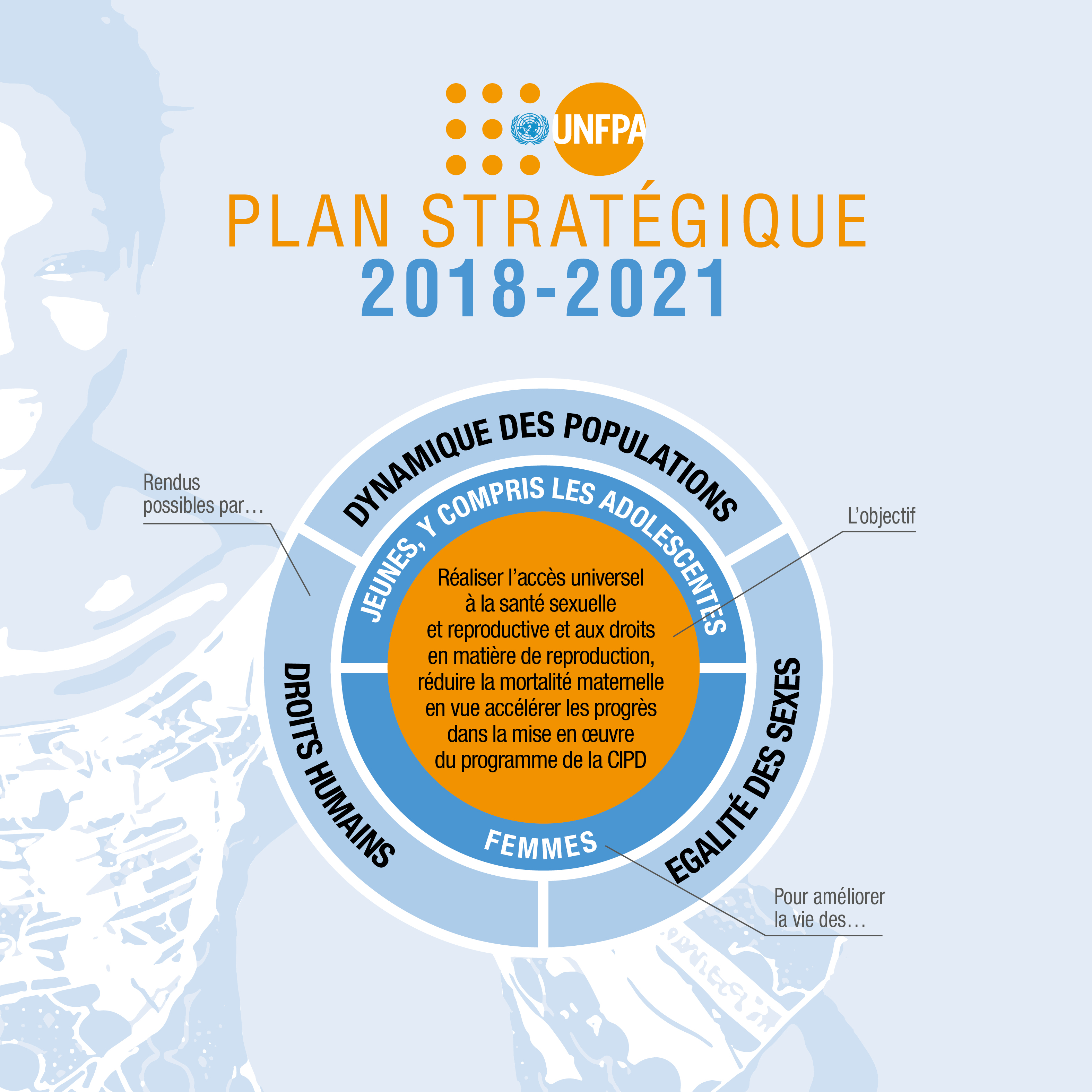

ECOWAS Member States Resolution on Fistula Elimination
Eliminating Fistula in West and Central Africa
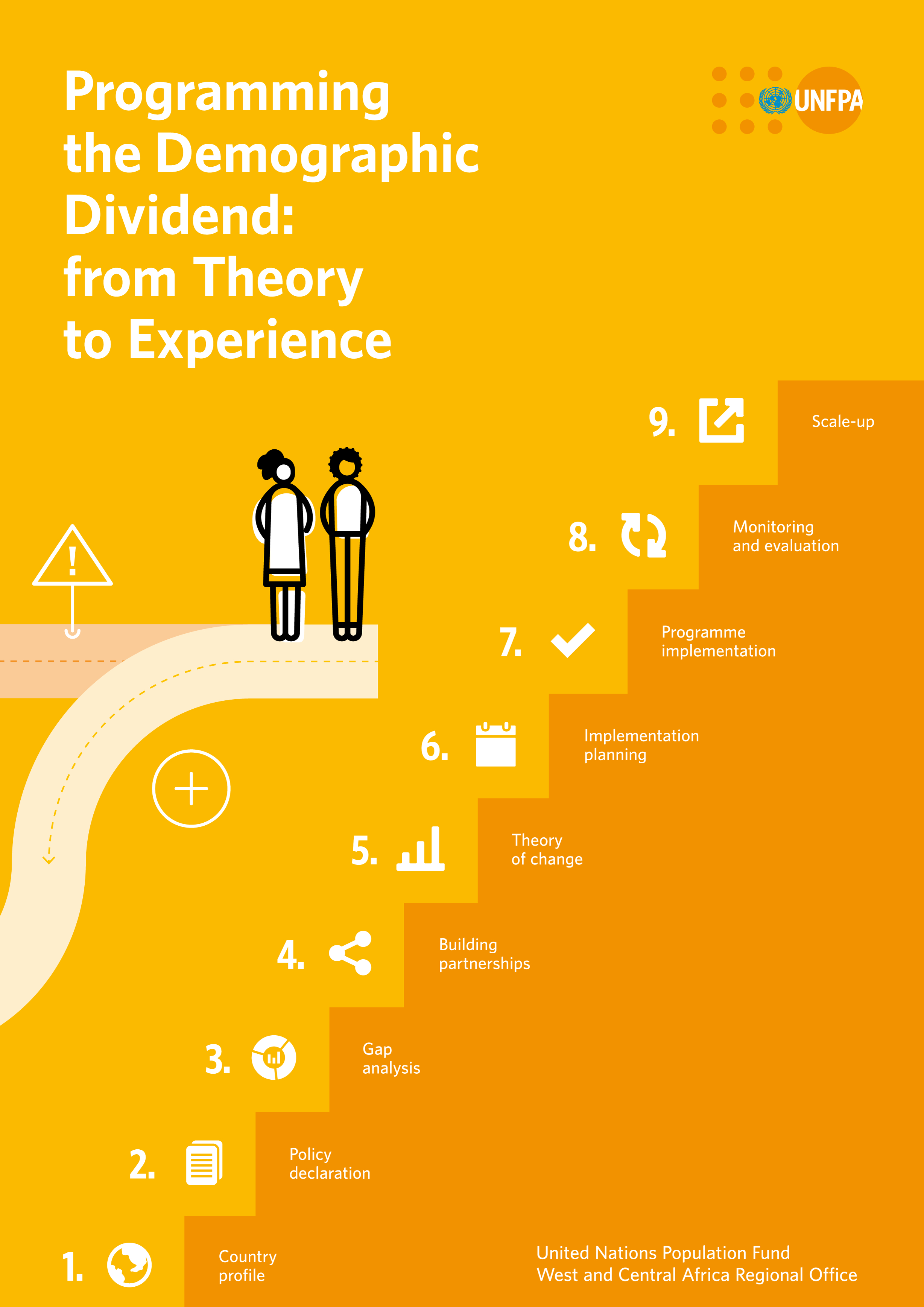
Programming the Demographic Dividend: from Theory to Experience
Proramming the Demographic Dividend: from Theory to Experience
Regional Strategy for Social and Behaviour Change Communication : Executive Summary
The regional project for Sahel Women’s Empowerment Demographic Dividend (SWEDD) aims accelerating the demographic transition in order to create the conditions for capturing the demographic dividend and reducing gender inequalities in the Sahel region.
To achieve these goals, one of the strategies adopted is to conceive and implement a Communication for Social and Behavioral Change (SBCC) aimed at increasing the demand for reproductive, maternal, neonatal and child health services and nutrition (SRMNIN) through the transformation of norms, attitudes and social practices that impede their use.
It is within this framework that a regional and national Communication Strategy for Social and Behavioral Change has been developed to empower women and girls, in the six SWEDD countries (Burkina Faso, Chad, Ivory Coast, Mali, Mauritania and Niger). Its development has benefited from the participation of all SWEDD stakeholders, making it a consensual document that reflects the major concerns of the six countries.
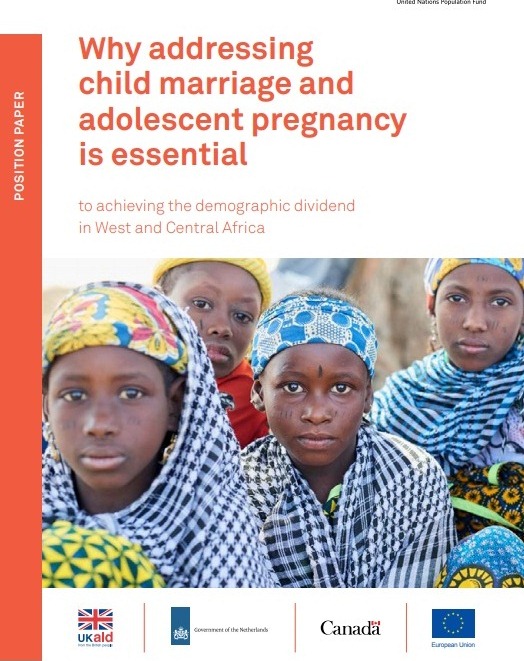
Why addressing child marriage and adolescent pregnancy is essential
Over the last ten years, it has become evident that the demographic dividend framework offers a strategic basis for focusing and prioritizing investments in people in general and youth in particular, in order to achieve sustainable development. The demographic dividend framework is in line with Africa’s Agenda 2063 and its’ ‘First Ten-Year Implementation Plan’ which together lay a strong foundation for the vision of African leaders in all facets of the continent’s development.
Likewise, it also underpins the 2030 Agenda for Sustainable Development. Young people comprise a significant percentage of the population. While many countries have already made progress in investing in young people, they must do much more if they want to harness the demographic dividend in this region. Young people in West and Central Africa face considerable challenges. This region has some of the world’s highest levels of child marriage, adolescent pregnancy and maternal mortality rates (especially among adolescents). Young people often do not have access or opportunities for the right education that provides them the knowledge and skills to protect their health, or to prepare them adequately for the labour market.
This position paper presents several strong arguments about why it is imperative to address child marriage and adolescent pregnancy, if we want to succeed in harnessing the demographic dividend in West and Central Africa. It also provides recommendations on the key actions different stakeholder groups can take to make this a reality. UNFPA is committed to supporting Governments and other stakeholders to harness the demographic dividend including through actions to end child marriage and reduce adolescent pregnancies in the region.
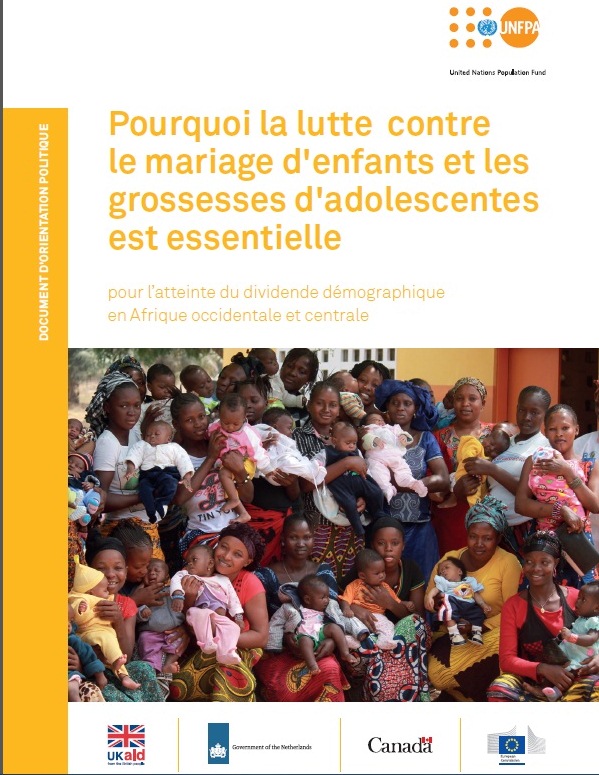
Why addressing child marriage and adolescent pregnancy is essential
The West and Central Africa region1 has 506.4 million people thus accounting for about 43 per cent of Africa's population. With current trends, the population is expected to increase to 756.2 million people by 2030.2 In addition, the population of West and Central Africa is predominantly young. More than 64 per cent are under the age of 24. These young people are a tremendous resource for the region but they face considerable challenges in terms of their health, education, employment and empowerment.
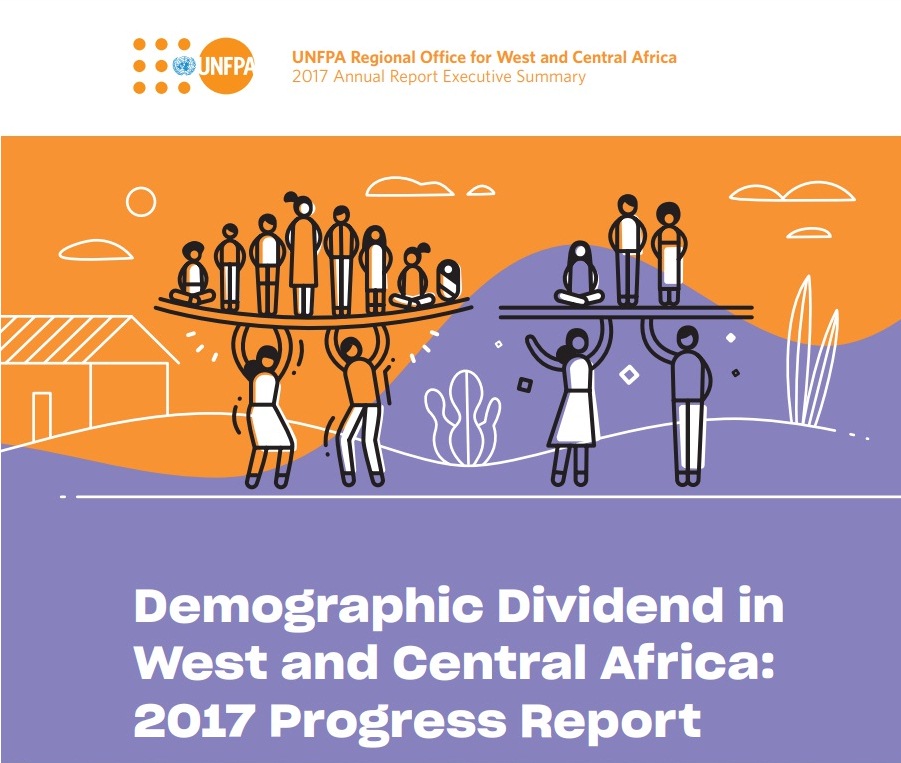
Demographic Dividend in West and Central Africa: 2017 Progress Report
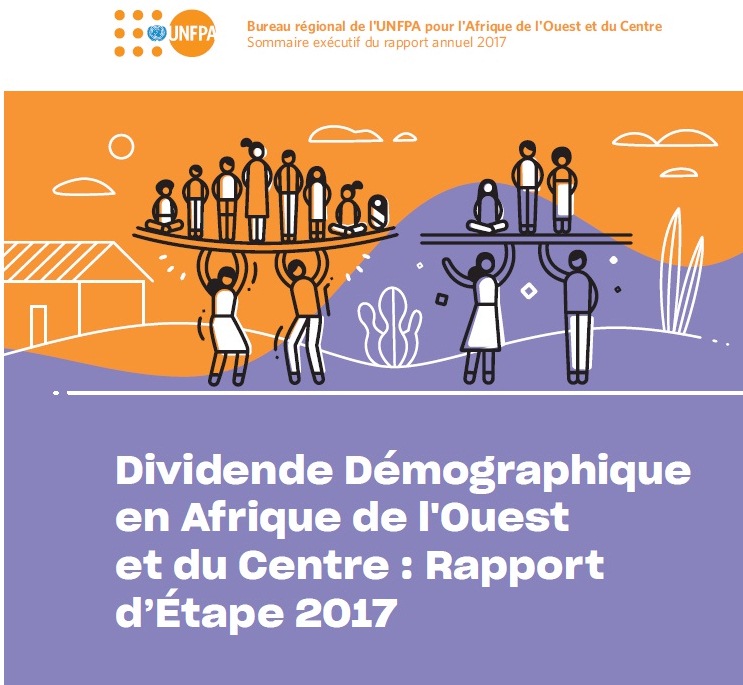
Demographic Dividend in West and Central Africa: 2017 Progress Report
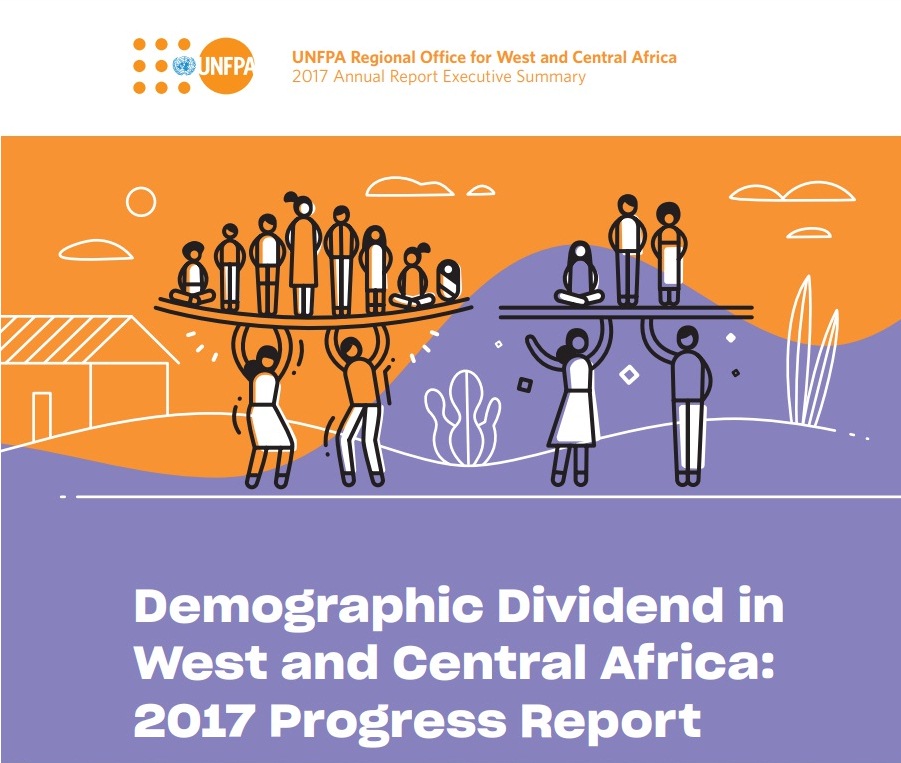
2017 Annual Report Executive Summary